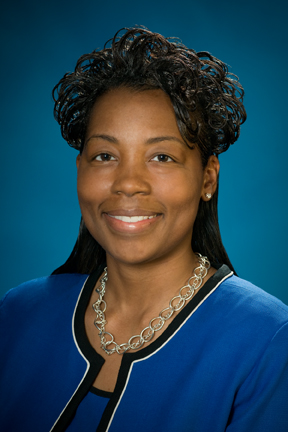Florida’s new Insurance Consumer Advocate Tasha Carter has been busy since taking office August 1. With more than 12,000 Hurricane Michael claims still open, according to the Florida Office of Insurance Regulation, one of Carter’s top priorities has been to investigate the reason for the open claims from the devastating Category 5 storm and how the recovery process can be improved going forward.
Carter, who has been with the Florida Department of Financial Services for 17 years, said her new role as the state’s insurance consumer advocate is just slightly different than what she did for DFS previously as director of the Division of Consumer Services for nine years. Now, instead of focusing on assisting individual consumers on a one-on-one basis, she said she is looking at opportunities to advocate on behalf of all insurance consumers.
Those opportunities will include proposing new legislation and working with legislators to protect insurance consumers, participate in hearings on insurance-related issues with DFS and the Florida Office of Insurance Regulation, and make recommendations to regulators on behalf of consumers.
“My new role allows me to more globally represent the interest of insurance consumers as insurance decisions are being made throughout the state at each of those various levels,” Carter said.
Carter spoke with Insurance Journal about her priorities, what she thinks the insurance industry could do better when it comes to working with their policyholders, and opportunities for the industry and her office to work together. The interview has been edited for clarity and brevity.
IJ: What are your top priorities as consumer advocate?

Carter: I am focused on three primary principles. One, I want to ensure that Florida’s insurance market is balanced from the perspective that coverage is available and affordable for insurance consumers in the state. … Secondly, I want to obtain data, review data, [and] analyze it so that I can identify those trends that are happening in the insurance industry that may impact consumers. And I definitely want to be able to identify trends so that I can attempt to improve the consumer’s experience with their insurance company. … Thirdly, I want to ensure that I am representing consumers’ interests when it comes to the filing of insurance rates and the filing of forms within our state, because of course insurance rates are going to have a direct impact on consumers and I want to be able to ensure that consumers are represented when those decisions are made. I also want to review the methodology and the actual science behind the insurance rates to determine if those rates that are being proposed are fair, warranted and appropriate for insurance consumers.
IJ: What are some of the trends you see when it comes to complaints and issues?
Carter: I’ll use Hurricane Michael as a very good example. That’s a storm that significantly impacted the North Panhandle of Florida over a year ago. I’ve been working with those consumers since five days after the storm and I’m still working with them. … Some of the feedback that we’ve received specifically related to Hurricane Michael insurance related claims is one, the extensive and prolonged and unnecessary delays in the handling of the claim. Many consumers shared that they filed their claim immediately after the storm and [it was] weeks and sometimes even months before they received any type of feedback or communication or follow up from the insurance company. We’ve also received a lot of complaints about overall communication between the policyholder and the insurance companies where the insurance companies have been nonresponsive. Or if they are communicating with the policyholders, their communication is not clear at times, and their communication is significantly delayed at times as well. … Other complaints that we’ve received is the assignment of multiple adjusters to claims, specifically as it relates to Hurricane Michael claims. There are some consumers who have indicated that they received up to seven to eight adjusters that have been assigned to their single claim. … [Consumers have] become very frustrated with their companies and they’ve lost trust and they’ve lost confidence in their companies.
The insurance industry has faced much scrutiny over the number of Hurricane Michael claims still unsettled with lawmakers and state officials questioning the industry and expressing frustration at the situation. For their part, industry representatives say there have been other factors at play leading to claims delays like a contractor shortage and litigation. OIR has issued multiple data calls to insurers and completed an analysis of claims data that was released near the one-year anniversary of the event.
Carter said she has requested data from 22 insurers that represent 75% of the open Hurricane Michael claims to review and analyze why they remain open. The data was due to her office by Nov. 11 and had not been received and analyzed by press time.
Carter: I am anxiously anticipating receiving those data submissions and having an opportunity to be able to go through and … identify those trends, not only from a company perspective, but also identify a trend from a claims handling perspective, from a business operational perspective, to be better able to determine how policyholders are being impacted and how we can address some of these issues going forward so they are not repeated.
IJ: Once you analyze that data, how do you plan to use it to address issues consumers are having?
Carter: Based upon the trends that are identified, I want to be able to determine whether or not there is a potential legislative proposal that could address the trends that I’m seeing that could allow us to implement some additional consumer protections, especially in the aftermath of a catastrophe. Once I put together the list of those legislative proposals, then I am going to work directly with CFO [Jimmy] Patronis and his legislative affairs team. The CFO is already putting together a consumer protection bill that he wants to submit and be heard in the next legislative session.
IJ: Are some insurance companies doing better than others?
Carter: I think there are some insurance companies that are absolutely doing a better job than others of handling their claims and being responsive to their policyholders. I know that there were several insurance companies that sent out communications prior to the storm. Immediately following the storm, they sent out post communication to their policyholders making sure that they had the claims number to file the claims and making sure they understood what the claims process was and how to initiate those claims. Many insurance companies have partnered with CFO Patronis and the department on attending insurance villages … oftentimes those insurance company representatives have the capability to print checks on site as well. And so, as you can imagine, for a typical policyholder whose only opportunity to interact with their insurance company is usually by phone or by email, being able to actually walk into a room and sit down with your insurance company representative and talk about your claim, ask questions related to your claim, submit additional documentation and then potentially walk away with a check in hand is absolutely beneficial.
IJ: What do you think agents can do to improve the consumer’s insurance experience?
Carter: [Agents play an important role] in educating the consumer. Even if a consumer is not sitting down in your office across from you asking questions in order to purchase a policy, even if you’re doing it online, there’s still an agent, a licensed agent, that is behind that policy transaction. So at that point I still think that ultimately there has to be a level of communication with that insurance consumer. Even if the insurance consumer wants to make the decision based upon the price of their premium, the agent still needs to ensure that that policyholder understands the coverages that they have, the limitations related to those coverages and the exclusions related to those coverages as well.
IJ: Are there opportunities for the industry to assist you in helping consumers?
Carter: Absolutely. While my primary focus is advocating on behalf of insurance consumers, I absolutely feel like for all industry stakeholders our goal is the same. And that’s to ensure that we are providing the best possible service to our customers, whether that’s insurance agents, public adjusters, company adjusters, independent adjusters, insurance company representatives. I definitely want to approach it from the perspective of working together. I think that we can work together to advocate at our respective levels for insurance consumers, to ensure that insurance consumers have the information, knowledge, the education that they need in order to make informed insurance decisions, and to ensure that the insurance industry continues to be a valuable market in our state.
I am absolutely looking forward in my new role to working with industry stakeholders at every level. I am open to listening to their feedback and receiving their input as I advocate on behalf of insurance consumers. And I encourage any industry stakeholder to reach out to me directly if they are seeing trends at their level that they want to bring to my attention. If they have suggestions or recommendations from a legislative standpoint that they would like to share with my office, I am absolutely open and willing and very much interested in hearing their feedback and working together with them.
Hear the Full Interview:
Topics Florida Catastrophe Carriers Natural Disasters Legislation Agencies Claims Hurricane Market
Was this article valuable?
Here are more articles you may enjoy.



 Uncertainty Keeps Prices Up; No Prior-Year Loss Development: Travelers
Uncertainty Keeps Prices Up; No Prior-Year Loss Development: Travelers  Investment Funds File New Suits Over Lighthouse Insurance Collapse in 2022
Investment Funds File New Suits Over Lighthouse Insurance Collapse in 2022  California Sees Two More Property Insurers Withdraw From Market
California Sees Two More Property Insurers Withdraw From Market  Vintage Ferrari Owners’ Favorite Mechanic Charged With Theft, Fraud
Vintage Ferrari Owners’ Favorite Mechanic Charged With Theft, Fraud 

